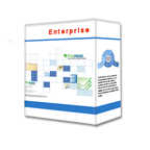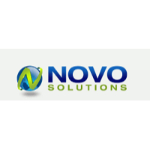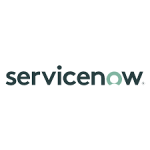List of Best Knowledge Management System
Showing 10 of 103 productsZoho Learn is an all-in-one cloud-based platform for businesses to organize knowledge, create self-paced training programs, and measure training outcomes, enhancing team productivity and learning efficiency...Read Zoho Learn Reviews
Help Scout is a customer support solution for businesses of all sizes. With its user-friendly interface and powerful features, Help Scout streamlines communication, improves collaboration, and enhances the overall customer experience. Say goodbye to...Read Help Scout Reviews
Airtable is a collaboration tool that helps teams organize and manage their work in a user-friendly way. With its intuitive interface and customizable features, Airtable streamlines complex processes and allows teams to work seamlessly together. From...Read Airtable Reviews
ClickHelp is a documentation tool designed to streamline the process of creating, managing, and publishing online documentation. With its user-friendly interface and robust features, ClickHelp empowers businesses and technical writers to easily creat...Read ClickHelp Reviews
FileHold is a top-rated document management software designed to simplify and streamline document organization for businesses of all sizes. With its intuitive interface, secure storage, is a searching capabilities, FileHold empowers companies to mana...Read FileHold Reviews
Novo Service Desk is a solution for streamlining your customer support process. With its user-friendly interface features, Novo Service Desk simplifies ticket management, enhances communication, and allows for seamless collaboration within your team...Read Novo Service Desk Reviews
KBpublisher is a knowledge management software that revolutionizes the way organizations store, share, and access critical information. With an intuitive interface and robust features, KBPublisher streamlines the process of creating, managing, and de...Read KBPublisher Reviews
Lansweeper simplifies your IT asset management by providing a powerful, user-friendly solution that offers detailed insights into your network devices and software. With Lansweeper, you can effortlessly track and manage your IT assets, ensuring optim...Read Lansweeper Reviews
ServiceNow ITSM is an innovative and highly efficient solution for managing IT services and processes. Designed to streamline operations and improve the overall efficiency of IT teams, ServiceNow ITSM offers a holistic approach to IT service manageme...Read ServiceNow ITSM Reviews
Document360 is a top-of-the-line software designed to streamline and simplify your documentation process. With its intuitive interface and powerful features, managing and sharing documents has never been easier. Say goodbye to cluttered folders and h...Read Document360 Reviews
- What Is Knowledge Management System?
- Top Reasons Why Businesses Need Knowledge Management System?
- What Are the Top Key Features of Knowledge Management System?
- What Are the Top Benefits of Knowledge Management System?
- What Are the Steps to Choose the Right Knowledge Management System?
- What Are the Types of Knowledge Management System for Different Industries?
- What Are the Technology Trends for Best Knowledge Management System?
- What Are the Deployment Options for Knowledge Management System?
What Is Knowledge Management System?
A Knowledge Management System (KMS) refers to a system employed by organizations to effectively store and manage knowledge and information. The primary objective of this system is to streamline the dissemination and acquisition of knowledge inside an organization through the utilization of various tools that effectively capture, store, analyze, evaluate, and organize information.
This enables firms to enhance their operational effectiveness, foster cooperation, foster innovation, sustain customer relationships, and promptly adapt to evolving market dynamics. The knowledge management software encompasses various methodologies and technologies, including knowledge repositories, ontologies, and collaborative networks.
Knowledge management systems are designed to store and effectively organize pertinent information that is relevant to a company. These repositories also integrate powerful search functionalities, which aid users in efficiently locating the specific information they require.
Ontologies serve as systematic frameworks for the categorization and organization of information, facilitating streamlined search processes. Collaborative networks refer to digital platforms that facilitate connection and communication among individuals, enabling them to exchange ideas, seek clarification, and acquire knowledge from one another.
Knowledge management software is regarded as a useful asset for businesses aiming to effectively generate and exploit information through the utilization of technology.
The best knowledge management software facilitates the efficient retrieval of pertinent information by businesses, while also enabling collaborative efforts to generate novel knowledge. Organizations can get a competitive edge within their market by comprehending and effectively employing the principles underlying the best knowledge management software.
Top Reasons Why Businesses Need Knowledge Management System?
1. One potential benefit is the enhancement of organizational efficiency achieved by optimizing the process of searching for and retrieving knowledge.
2. The objective is to enhance creativity and productivity by promoting increased knowledge exchange among staff.
3. One of the important factors that might contribute to making better business judgments is the enhanced accessibility to crucial information related to decision-making processes.
4. There has been a notable rise in the level of collaboration and communication observed among various departments and teams.
5. One of the benefits of having access to current product information is the enhancement of customer service.
6. The utilization of this approach facilitates a more expedited and effective acquisition of knowledge about novel software, goods, and processes.
7. The implementation of this strategy facilitates the process of organizational learning and knowledge retention, hence contributing to the development of organizational competence.
8. One potential benefit of implementing greater information reuse and knowledge-based procedures is the potential for reduced costs and faster project delivery.
9. The enhancement of client retention and satisfaction has been achieved through improved service delivery.
10. Enhanced employee retention via improved knowledge transfer and heightened job satisfaction.
11. This approach facilitates comprehension by systematically organizing and disseminating knowledge in a manner that clarifies complex concepts.
12. This initiative enhances organizational strategy by facilitating a deeper comprehension of client demands and trends.
13. The implementation of this technology improves current procedures and facilitates the customization of enterprise solutions, leading to enhanced business results.
14. Facilitates compliance with international regulations of knowledge management governance for organizations.
15. The company achieved enhanced financial gains through the identification and exploitation of novel avenues for improving operational effectiveness, leveraging economies of scale, and realizing cost reductions.
What Are the Top Key Features of Knowledge Management System?
1) Data Capture and Storage: The knowledge management platform facilitates the acquisition of knowledge from various sources, including employees, customers, and partners, and afterward stores it in a centralized repository to facilitate convenient access and retrieval.
2) Data Retrieval: Knowledge management tools facilitate efficient information retrieval and interpretation by establishing an index or library comprising several categories and sub-categories. This organizational structure enables users to swiftly search for and identify the required information.
3) Collaboration Tools: Knowledge management solutions enhance the process of collaboration among many departments and personnel. The platform facilitates the seamless sharing of documents, ideas, and data among users in various geographical regions.
4) Automation: The best knowledge management systems facilitate the automation of various activities, including but not limited to document routing, version control, and archive functions.
5) Analytics: Knowledge management (KM) solutions offer comprehensive analytics and metrics about the information stored and retrieved inside an organization.
6) Security: Knowledge management system software includes robust security measures such as access control, data encryption, and authentication protocols to safeguard the stored information.
7) Customization: A knowledge base management system offers a range of features that allow users to adapt and personalize the system according to their requirements.
What Are the Top Benefits of Knowledge Management System?
1. Improved employee collaboration: Knowledge management technology has the potential to enhance cooperation among employees by offering a convenient platform for sharing their work, ideas, and experiences. This, in turn, can result in improved job quality and more effective collaborative problem-solving.
2. Streamlined operations: Knowledge-based management systems enable firms to streamline and structure information, facilitating the establishment of effective procedures and minimizing operational delays or confusion.
3. Increased productivity: By facilitating employees' access to knowledge and resources, organizations have the potential to enhance productivity and performance levels.
4. Reduced time to market: The best knowledge management software plays a crucial role in expediting and enhancing decision-making processes, enabling organizations to effectively minimize their time to market and streamline the introduction of novel products or services.
5. Increased customer satisfaction: Knowledge management solutions play a crucial role in maintaining and organizing company knowledge, thereby ensuring the correctness of customer service and ultimately enhancing customer happiness.
6. Increased employee morale: By enhancing the accessibility of crucial knowledge and resources to employees, organizations can enhance employee morale by reducing the need for time-consuming information retrieval activities.
7. Improved decision-making: Companies can enhance their decision-making processes by consolidating a diverse range of data and resources into a centralized platform.
8. Better organizational learning: Top knowledge management software enables organizations to efficiently capture, store, and successfully manage their corporate memories. Consequently, this phenomenon results in enhanced organizational learning and improved capacity to effectively address forthcoming challenges.
9. Enhanced competitive advantage: Through the utilization of the knowledge and resources included inside a knowledge management system, organizations are endowed with enhanced capabilities to cultivate superior products and services within a fiercely competitive market.
What Are the Steps to Choose the Right Knowledge Management System?
1. Identify key business objectives: When selecting a knowledge management system, it is imperative to ascertain the primary business objectives that the system ought to accomplish. This process aids in the reduction of possibilities to those systems that are best appropriate for the organization.
2. Assess available options: Once the desired objectives have been identified, the subsequent phase involves evaluating the available alternatives. Knowledge management software typically encompasses multiple capabilities, including but not limited to document sharing, work automation, and supplementary advantages. When deciding on a knowledge management solution, it is crucial to assess and determine which system aligns most effectively with the unique requirements of the organization.
3. Evaluate the system’s effectiveness: Before reaching a conclusive determination, it is important to assess the efficacy of the system. This necessitates the evaluation of several aspects such as the security, usability, scalability, and other functionality of the system. This stage is crucial to ascertain if the selected system is optimally aligned with the requirements of the organization.
4. Assess usability: Following the evaluation of the efficacy of the best knowledge management software, the subsequent phase entails the assessment of its usability. Usability encompasses the evaluation of the system's user-friendliness and its alignment with the ease of use for employees.
5. Consider cost: Lastly, it is important to take into account the financial implications of implementing the system. Certain knowledge management platforms may possess a greater financial investment compared to others, although they also provide a broader range of functionalities.
Hence, it is crucial to select a system that aligns with the needed characteristics at an appropriate price point.
In general, the process of selecting an appropriate knowledge management tool entails the identification of crucial business objectives, the evaluation of system performance, the assessment of usability, and the consideration of cost implications. By adhering to these procedural guidelines, one can ensure the optimal selection of a system that aligns with the specific requirements of the organization.
What Are the Types of Knowledge Management System for Different Industries?
The subject at hand lacks a definitive answer because various information management systems are designed to cater to distinct sectors.
Nonetheless, across various businesses, the three primary categories of knowledge management systems encompass human resource management (HRM) systems, customer relationship management (CRM) systems, and enterprise content management (ECM) systems.
Human Resource Management systems (HRMS) are utilized to store and effectively manage employee data, encompassing a wide range of activities such as recruitment, onboarding, training, and performance evaluations.
Customer Relationship Management (CRM) systems are specifically intended to effectively store and manage customer data, as well as monitor and record customer interactions. This data can be utilized to enhance customer service, analyze client patterns, and bolster revenue.
Enterprise material Management (ECM) systems are utilized to store and effectively manage many forms of organizational material, including but not limited to digital documents, photographs, audio files, and video files.
Enterprise Content Management (ECM) systems have the potential to enhance collaboration, facilitate the exchange of knowledge, and optimize organizational workflows.
What Are the Technology Trends for Best Knowledge Management System?
The technology trends for the best knowledge management system are:
1. Artificial intelligence (AI): Artificial intelligence (AI) refers to the utilization of computer algorithms to acquire knowledge and insights from data. AI-driven knowledge management software utilizes self-learning algorithms to facilitate efficient retrieval of pertinent and precise information for individuals.
2. Cloud computing: Cloud computing offers a robust infrastructure for the implementation of knowledge management systems, granting enterprises the versatility to effectively handle data originating from diverse geographical locations.
3. Data analytics: Top knowledge management systems leverage data analytics techniques to gain insights from user activity and subsequently provide personalized content recommendations aligned with individual user interests.
4. Natural language processing: Natural Language Processing (NLP) facilitates the computational analysis of material written in natural language, enabling machines to derive meaning and subsequently make informed decisions. This enables machines to efficiently analyze textual documents and other repositories of information.
5. Mobile integration: Mobile integration enables users to conveniently access and operate the best knowledge management software using a wide range of devices, including smartphones and tablets.
6. Social networking: knowledge management platforms commonly incorporate several components, such as group chat, forums, and other similar tools, intending to facilitate the exchange of information and foster collaborative learning among users.
What Are the Deployment Options for Knowledge Management System?
The available deployment choices for a knowledge management system encompass on-premises deployment, cloud-based deployment, and hybrid deployment.
The implementation of on-premises deployment necessitates the organization to possess its own server infrastructure, where the knowledge management software is deployed and operated within the local environment.
Cloud-based deployment refers to the practice of managing and hosting knowledge management solutions on a remote server located in the cloud.
A hybrid deployment refers to the integration of two distinct components, namely the best knowledge management software housed on a remote cloud server and a local installation designed for local processing.










